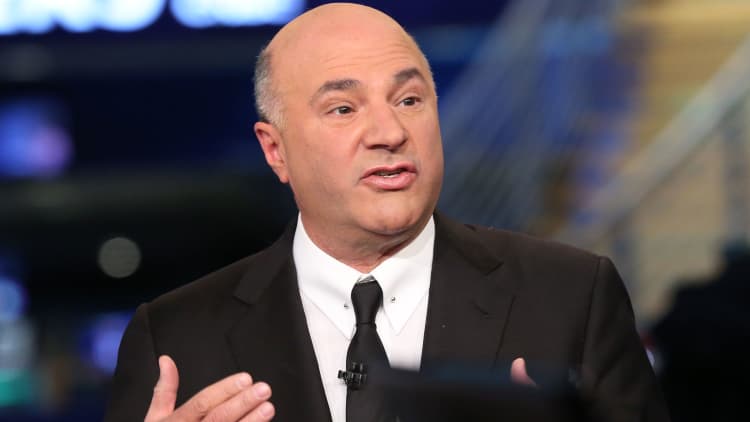
Broadcom increased its bid for rival chipmaker Qualcomm on Monday morning. If it succeeds, the deal is likely to generate some $3 billion in cost synergies, according to KeyBanc analysts.
That would likely mean cutting thousands of jobs, running counter to the pro-jobs agenda of the White House. That could strain the friendly relationship between Broadcom and the Trump administration. President Donald Trump in November publicly thanked Broadcom CEO Hock Tan for returning the company's headquarters to the United States and Tan in return praised the then-forthcoming tax overhaul.
But billionaire investor Kevin O'Leary sees a bright side, he told CNBC's "Squawk Box" Monday.
"People love this deal," he said. "Many people that own Broadcom and Qualcomm, like me, want to see this."
The reasoning is pretty simple: $3 billion in "synergies" — a term often used to mean cost-saving layoffs — protects profits in the long run and, in this case, frees up engineers to fill the well-established tech talent shortage.
"Those people will get hired immediately by other competitors," O'Leary said. "These are very expensive engineers. Get the whacking stick out. I love that."
A combined Broadcom-Qualcomm could feed innovation in the rapidly growing semiconductor sector and eliminate some of the operational headaches.
"[Broadcom CEO Hock Tan] already made that commitment to show that he'll bring jobs to America," O'Leary said. "Now he's going to synergize America, which is even better — more productivity."
Qualcomm consistently ranks at the top of its peers in innovation. Last year Strategy&, the global strategy consulting arm of PwC, listed the company 26th on its Global Innovation 1000 study of top R&D spenders, and CNBC named it to its own IQ 100 Index.
But Qualcomm has been tied down for years in ongoing litigation with Apple over licensing agreements.
"There are many shareholders, including me, who think Qualcomm is very poorly managed," O'Leary said. "I would like adult supervision to come in from Broadcom, work it out with Apple and make it so that I can make more money with Apple as opposed to litigating until the cows come home."


